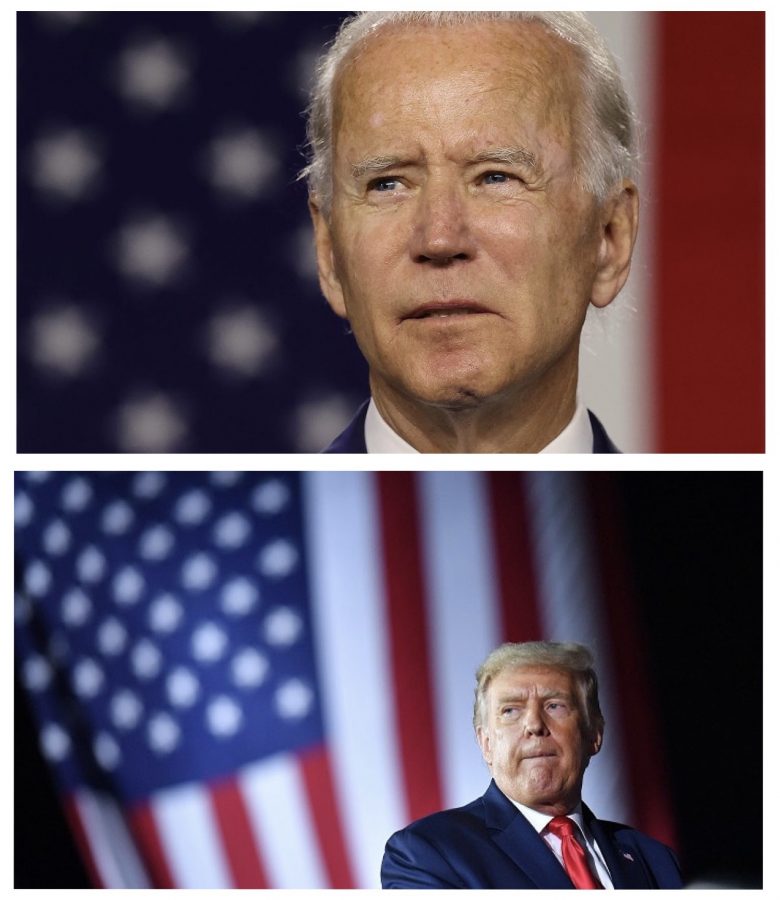Presidential Election is Anyone’s Game
To no one’s surprise, the 2020 presidential election has become even more unconventional and newsworthy over the past few weeks. After President Trump’s COVID-19 diagnosis, he declined to participate in what would have been an entirely virtual second debate, opting to do a town hall on the same night and time as former Vice President Joe Biden. Prospective viewers of the “debate” were faced with the decision of which candidate to watch, a strategy that the president hoped would work in his favor. Yet, according to Nielsen ratings, the Biden event was watched by 13.9 million people on ABC alone, compared to roughly 13 million viewers for President Trump combined across NBC, CNBC and MSNBC. Furthermore, the Biden event comfortably beat the Trump event with regard to viewership on YouTube.
Viewers of the events were also subjected to two vastly different experiences. In Trump’s town hall, the president refused to denounce the QAnon conspiracy, stating that its followers “love our country,” despite the FBI warning that the group poses a potential domestic terror threat. QAnon, explained simply, is the umbrella term for a long list of conspiracy theories that falsely allege that “the world is run by a cabal of Satan-worshiping pedophiles who are plotting against Mr. Trump while operating a global child sex-trafficking ring.” After his refusal to denounce followers of these theories, President Trump also continued to defend his handling of the coronavirus pandemic. Savannah Guthrie pressed the president on a number of his policies and actions from his time in office, attempting to get the president to clarify his positions on a number of issues as well as possible plans for a second term. The president gave no clear agenda.
The Biden event was a different story, as the former vice president offered “long-winded responses and deep policy dives” to voters who asked him questions, expanding on the extensive agenda that he hopes to pursue in office. After deftly avoiding the topic for weeks, Biden was pressed to answer a question on court packing, and he signaled that he would announce his position on expanding the number of seats on the court before Election Day. The events were good chances for voters to see and hear more from the candidates prior to Election Day, but the fact that they happened at the exact same time made it extremely difficult for the American public to be informed prior to one of the most important elections that the country will ever have.
The third presidential debate went ahead as scheduled on Oct. 22 and was a far different viewing experience than the 90 minutes of interruptions that the country had to endure in the first debate. President Trump was far more subdued than he was in the first debate as the two candidates clashed on a number of issues. Rare glimpses of President Trump’s agenda were discussed in the debate, as he voiced his support for states deciding on their own minimum wages, as well as bashing wind power and solidifying his support for coal and petroleum producers. Biden advocated for a “transition from the oil industry” in the interest of protecting the environment.
While there were several other notable moments from the debate, one that caught the attention of many was President Trump saying that he was the “least racist person in the room” and that, with the “possible” exception of Abraham Lincoln, no president has done as much as he has for the Black community. As reported by The New York Times, Vice President Pence claimed in the vice presidential debate that “it was offensive to say there is systemic racism in the United States.”
While the two candidates sparred on numerous important issues that the country will continue to face in the next four years, one might wonder if the debate really changed anyone’s mind. According to the BBC, polls show that Biden commands a 51-43 point lead over the president, suggesting a large victory. However, upon examining polls in battleground states, the margins become much smaller. Biden is leading in Florida by a little more than a point, North Carolina by two and Pennsylvania and Wisconsin by about five. President Trump is leading in Ohio by less than one point and in Texas by four points.
However, if the 2016 election taught us anything, these polls can most certainly be wrong. Hillary Clinton was predicted to comfortably defeat Trump in 2016 only to lose the electoral college after winning the popular vote. A CNN poll found that 53% of the second debate’s viewers thought former Vice President Biden had a better performance in the debate, as opposed to 39% for President Trump. Republicans had hoped that the president could make some impact in the polls after the debate, but Biden’s lead seems to have remained strong.
The state of the polls does not mean in any way, shape or form that Joe Biden is guaranteed to win the presidency on Nov. 3. If you have not voted yet, make a plan to do so, in-person if you can. If you are voting by mail, send in your ballot as soon as possible, or arrange to drop it off in-person if possible. While I’m sure you’ve heard it before and you will most certainly hear it again in the next two weeks, vote. The fate of the country depends on it. People’s lives depend on it. As Joe Biden said in his closing statement of the third debate, the “character of this country” is on the ballot this election.
Julian Shuttleworth, FCRH ’24, is a political science major from Columbus, Ohio.








































































































































































































